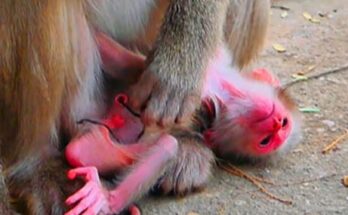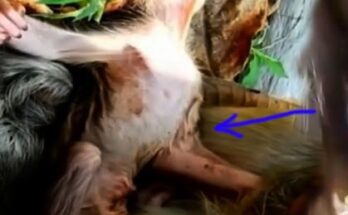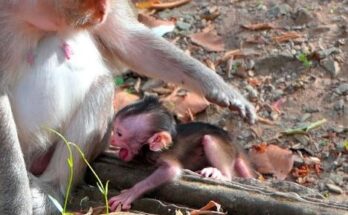Monkeys, often seen as playful and intelligent creatures, face a harsh reality in the wild. Many young monkeys become orphaned due to poaching, habitat destruction, or human-wildlife conflict. Without their mothers, these vulnerable infants struggle to survive, lacking the protection, warmth, and crucial survival skills that parental care provides.
In the wild, a mother monkey is essential for an infant’s well-being. She feeds, grooms, and teaches her baby how to find food, avoid predators, and interact with the troop. When a mother is killed or taken away, the orphan is left defenseless. Some orphaned monkeys may be adopted by other members of the group, but many are rejected and left to fend for themselves. Without guidance, they often suffer from malnutrition, injuries, and even death.
Beyond orphanhood, many monkeys endure injuries due to human activity. Deforestation and urbanization force them into close contact with humans, leading to road accidents, electrocutions from power lines, and violent encounters with people. Some monkeys are trapped or killed for the illegal pet trade, leaving survivors traumatized and physically harmed. Additionally, conflicts with other monkeys can lead to severe wounds, particularly when young ones lose the social structure that protects them.
Despite these challenges, rescue organizations and sanctuaries work tirelessly to rehabilitate and care for injured and orphaned monkeys. These efforts provide them with food, medical care, and, in some cases, reintroduction into the wild. However, long-term solutions require stricter laws against poaching, habitat preservation, and education to promote coexistence between humans and wildlife.
The life of a monkey is not always the carefree existence we imagine. For many, survival is a daily struggle, and without intervention, countless young primates face a grim fate.


